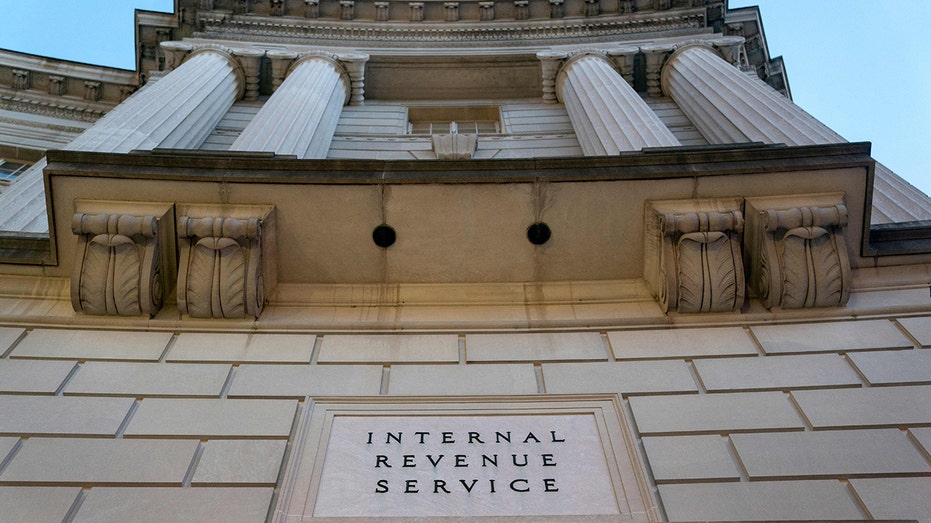The Supreme Court on Thursday rejected a challenge to the constitutionality of a Trump-era tax on foreign income, in a case that held sweeping ramifications for the entirety of the U.S. tax code.
The justices voted 7-2 to uphold the tax, although Justice Brett Kavanaugh in the majority opinion said the decision had no bearing on a potential wealth tax.
“Nothing in this opinion should be read to authorize any hypothetical congressional effort to tax both an entity and its shareholders or partners on the same undistributed income realized by the entity,” Kavanaugh wrote. “Those are potential issues for another day, and we do not address or resolve any of those issues here.”
At the heart of the case, Moore v. the United States challenged the constitutionality of a provision tucked into former President Donald Trump’s sweeping tax overhaul. The measure, Section 965, imposed a one-time transition tax on foreign earnings accrued by certain overseas corporations owned by U.S. shareholders between 1986 and the end of 2017 that had previously benefited from deferral.
The plaintiffs – Charles and Kathleen Moore, who were backed by anti-regulatory groups – argued that Section 965 is unconstitutional because it applies a tax to “unrealized” income, which they say violates the 16th Amendment. The Moores, who were investors in an India-based company, were required to pay a one-time $15,000 tax bill on their foreign investment. However, they contend that they have never received any actual money from the investment, because the profit was reinvested into the company, KisanKraft, which sells farm equipment in India, and thus never “realized.”
IRS PENALTIES ON AMERICAN TAXPAYERS SURGED NEARLY 300% LAST YEAR
Experts say the case was really a proxy battle over the legality of a wealth tax.
“The mandatory repatriation tax is the subject of this litigation,” Gary Scanlon, a principal in the international tax group within KPMG’s Washington National Tax office, previously told FOX Business. “But you can tell from the oral arguments, from the briefing, that there’s a real focus on a wealth tax and whether that wealth tax, if ever passed by Congress, is constitutional.”
The Moores’ dispute centered on the 16th Amendment. Enacted in 1913, it says: “Congress shall have power to lay and collect taxes on incomes, from whatever source derived, without apportionment among the several States, and without regard to any census or enumeration.”
IRS PLANS TO CLOSE ‘MAJOR’ TAX LOOPHOLE USED BY WEALTHY AMERICANS
“If you haven’t received any income, how can you be required to pay income taxes?” Charles Moore said in a video shared by the Competitive Enterprise Institute, a libertarian group that represented the Moores. “It seemed, to both of us, unconstitutional.”
The Moores invested about $40,000 in KisanKraft in 1980 – an investment that is now worth more than $500,000.
The Justice Department had in turn argued that the one-time repatriation tax is constitutional, and that the 16th Amendment does not require Congress to tax only realized gains.

If the Moores had won, it could have led to substantial revenue losses by forcing the federal government to pay back potentially billions of dollars in collected taxes.
A victory for the Moores could also have preemptively outlawed a wealth tax similar to one proposed by Sen. Elizabeth Warren, D-Mass, in addition to making large chunks of the tax code obsolete.
“A decision for the Moores would necessitate a rethink of, quite frankly, the entire tax code,” Scanlon said. “That really, to cut to the chase, in the oral arguments, that was clearly a concern articulated by the justices themselves.”
Former House Speaker Paul Ryan, who helped to draft the Trump-era tax law, had echoed similar concerns that a victory for the Moores could make large swaths of the tax code unconstitutional.
“A lot of the tax code would be unconstitutional if [Moore] prevailed,” Ryan warned late last year. “I think it’s a misguided challenge.”
Read the full article here











